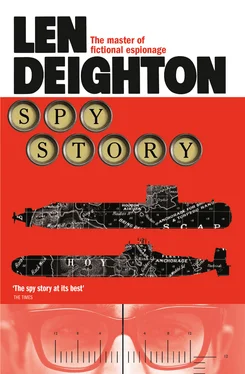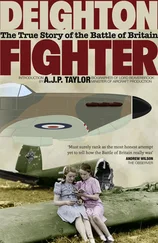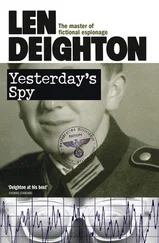But above all, this is a book depicting the ‘great outdoors’. I have always admired those writers who have a deep and lifelong obsession with nature. I had very little experience of the countryside when I was a child. I grew up in central London so the trips to Wales and to Cornwall, on which my father took us, were exciting expeditions. As a footloose teenager I would frequently splurge on a cheap overnight railway ticket to the Scottish highlands and the region of the great lochs. From that time onwards the rough country that Scotland and Ireland provides was my first choice when on walking holiday. In the 1950s, with an equally foolish fellow-student, I hitchhiked to Edinburgh to be there for New Year’s Eve. Short of money, we pitched a two-man tent each night and more than once awoke to find ourselves buried under a snowdrift. My travelling companion – Bob Hyde – had done his military service in the RAF mountain rescue service so he was rather hardier than I proved to be, but I persevered. In December, northern England becomes dark early. We learned how to pitch our tent in darkness and brewed tea using a tiny Primus stove. One morning we were awoken by the cheers and jeers of young girls. We climbed out of our tent to find we had pitched on the well-kept front lawn of a girl’s boarding school
We had allowed for a week on the road and as the holiday approached traffic became infrequent. One of our early morning lifts was on a lorry, and when we were dropped off at a smart hotel for a hot breakfast the waiter was polite and welcoming. It was only later that day that we realised that the lorry had been carrying boxes of herring and that we both stank of stale fish. I so admired the sang froid of that waiter.
With good luck and good lifts we arrived at Edinburgh’s YMCA in the early evening just in time for New Year’s Eve. But after three flights of stairs carrying my heavy rucksack I dropped down on my bunk, my eyes closed and by the time I awoke it was morning and a New Year. I was an urban creature who had to learn what life was like when devoid of city comforts. It was only as an adult that I came with my family to live in rural areas and saw it season by season at its best and at its worst. Some of my experiences in harsh winter informed the scenes in this book, Spy Story.
Len Deighton, 2012
As each bound ends, units cease to be operative until commencement of next bound.
RULES. ALL GAMES. STUDIES CENTRE. LONDON
Forty-three days without a night: six pale-blue fluorescent weeks without a sniff of air, sky, or a view of the stars. I drank in a cautious half-lungful of salty mist and smelled the iodine and seaborne putrefaction that seaside landladies call ozone.
HMS Viking, a deep water anchorage in western Scotland, is no place to celebrate a return to the real world. The uninhabited islands, a mile or more out in the Sound, were almost swallowed by sea mist. Overhead, dark clouds raced across the water to dash themselves upon the sharp granite peaks of Great Hamish. Then, in threads, they tumbled down the hillside, trailing through the stones and walls that had once been a Highland croft.
There were four submarines alongside the one from which I emerged. Out at the anchorage were more of them. The lash of the westerly wind made them huddle close to the mother ships and their crooning generators. The yellow deck lights were visible through the grey mist, and so were the flocks of gulls that screamed and wheeled and shrieked as they fell upon the kitchen garbage.
The wind brought gusts of rain, whipping up crested waves that awoke the subs. Underfoot I felt the great black hull strain against its moorings. The brow tilted. Stepping from the edge of each horizontal fin to the next was easier if I didn’t look down.
Now the next hull groaned, as the same wave sucked and gurgled at its bow. The forecast had been reasonably right for once: overcast, low cloud, drizzle and wind westering. The rain scratched at the slop-coloured sea and crept into my sleeves, boots and collar. My rubber shoe slipped but I recovered my balance. I shook the water off my face and cursed pointlessly.
‘Steady on,’ said Ferdy Foxwell behind me, but I cursed again and built his name into one of the inversions.
‘At least the navy is on time,’ said Ferdy. There was an orange-coloured Ford on the jetty. The door opened and a slim man got out. He was wearing a Burberry and a tweed hat but I knew he’d be the British naval officer from the police office. He bent his head against the rain. The armed USN sentry at the end of the gangway poked his head out of his shelter to check the pass. I recognized the officer as Frazer, a lieutenant. He made his way along the slippery walk towards us, stepping across the gaps with commendable agility.
‘Let me take that.’ He extended a hand, and then smiled in embarrassment as he noticed that the shiny metal case was padlocked to a shoulder-chain under my coat.
‘Help Mr Foxwell,’ I said. ‘He never fastens his.’
‘Neither would you if you had any sense,’ puffed Foxwell. The man squeezed past me and I had a chance to look down at the oily scum, and smell the diesel, and decide that Ferdy Foxwell was right. When I reached the brow – the horizontal fin – of the next submarine I rested the box and looked back. The young officer was bowed under the weight of Ferdy’s case, and Ferdy was stretching his arms to balance his two hundred pounds of compact flab, teetering along the gangway like a circus elephant balancing on a tub. Six weeks was a long time to spend in a metal tube, no matter about sun lamps and cycling gear. I picked up the case loaded with spools and tape recordings, and remembered how I sprinted across these brows on the outward journey.
A red Pontiac station wagon came along the jetty, slowed at the torpedo store and rolled carefully over the double ramps. It continued along the front until turning off at the paint shop. It disappeared down between the long lines of huts. The curved huts were shiny in the rain. Now there was no human movement, and the buildings looked as old as the black granite hills that shone rain-wet above them.
‘Are you all right?’ Frazer asked.
I shouldered the wet case as I started down the companionway to the jetty. The hatch in the sentry hut slid open an inch or two. I could hear the radio inside playing Bach. ‘OK, buddy,’ said the sailor. He slammed the hatch shut as a gust of wind hammered the hut with rain.
There was a panel van behind the Ford. A bad-tempered Admiralty policeman grumbled that we were two hours late and about how the Americans couldn’t make tea. He scowled as he signed for the cases and locked them in the safe in the van. Ferdy shot him in the back of the head with a nicotine-stained finger. Frazer saw the gesture and permitted himself a thin smile.
‘Perhaps a tot?’ said Frazer.
‘I wish I had your job,’ said Ferdy Foxwell.
Frazer nodded. I suppose we all said that to him.
There was the clang of a steel door. I looked at the nuclear submarine that had taken us to the Arctic and back. We civilians were always permitted to leave first. Now there was a deck party assembling forward of the conning tower, or what I’d learned to call a sail. They faced several more hours of work before the sub’s second crew arrived and took her to sea again.
‘Where is everyone?’
‘Asleep, I shouldn’t wonder,’ said Frazer.
‘Asleep?’
‘A Russian sub came down through the North Channel and into the Irish Sea on Wednesday morning … big panic – hunter killers, sonar buoys, County Class destroyers, you name it. Yards of teleprinter. Seventy-two hours of red alert. We were only stood-down last night. You missed the pantomime.’
Читать дальше












